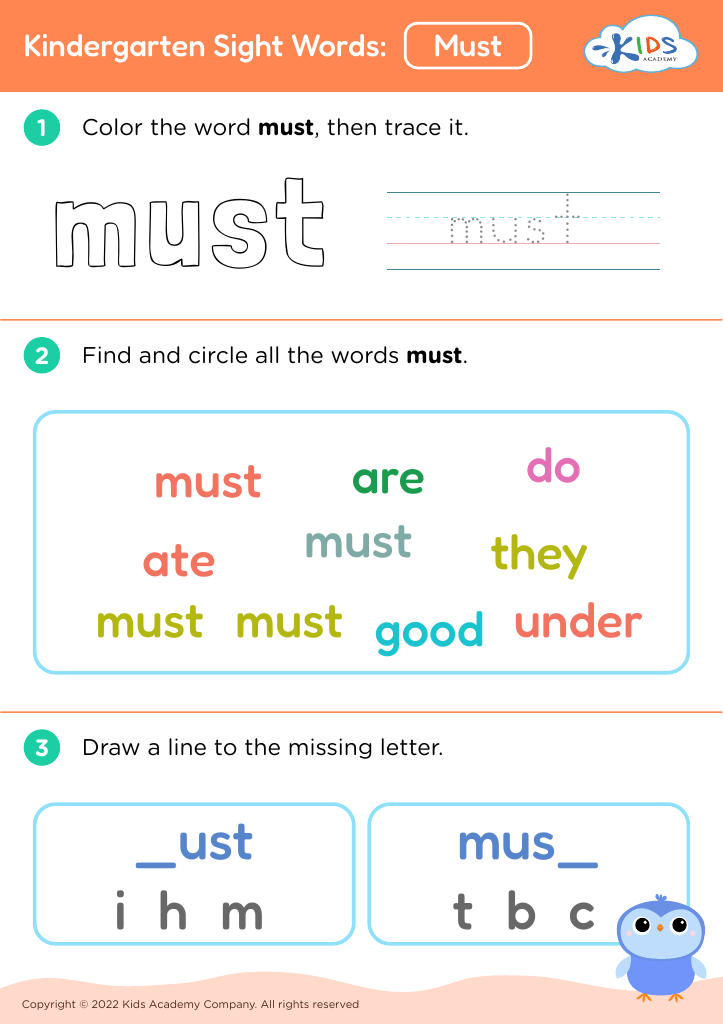Vocabulary development Building Vocabulary Worksheets for Ages 6-8
12 filtered results
-
From - To
Unlock the power of language with our engaging "Vocabulary Development Building Vocabulary Worksheets" designed specifically for children ages 6-8. These worksheets offer a fun and interactive approach to enhancing vocabulary skills, helping young learners expand their word knowledge through various activities and exercises. With a focus on context, definitions, and practical usage, our resources ensure that kids grasp the meaning of new words while enjoying the learning process. Ideal for classroom use or at-home practice, these worksheets make vocabulary building a breeze, laying a strong foundation for reading and comprehension skills. Explore our collection today and watch your child's vocabulary thrive!
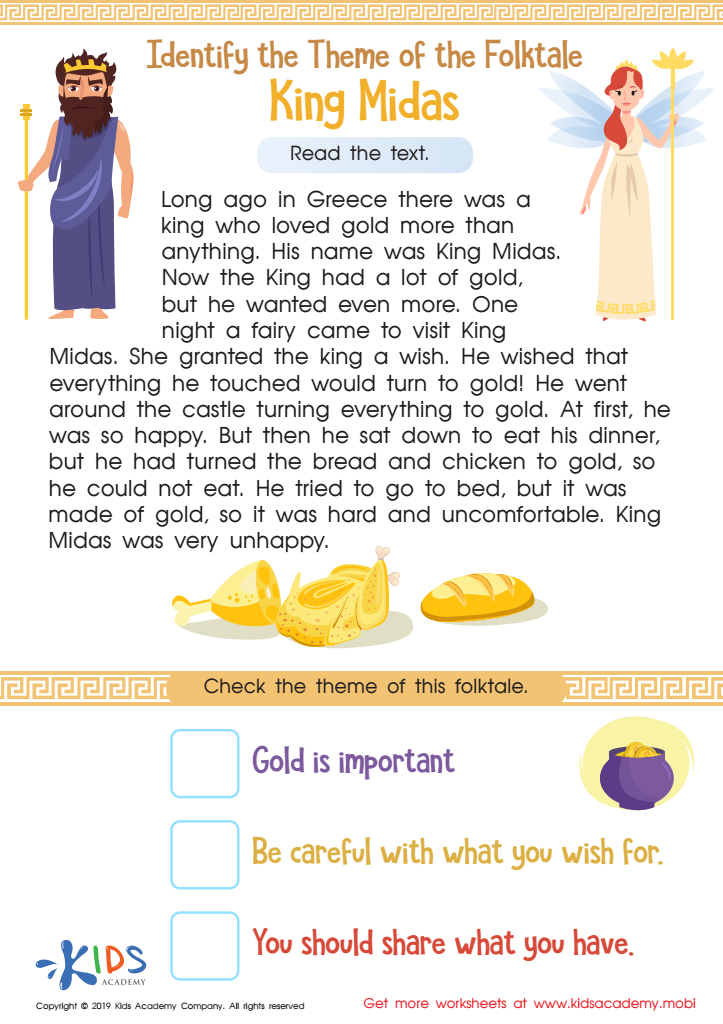

King Midas Worksheet
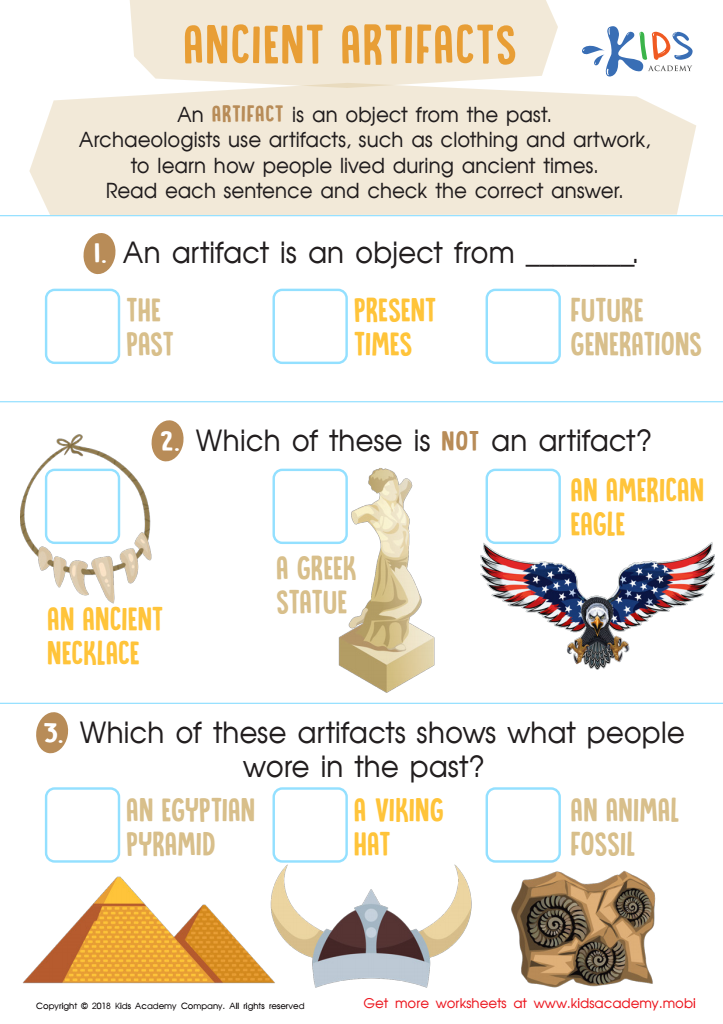

Ancient Artifacts Worksheet


Phonics and Word Recognition: Assessment 3 Worksheet
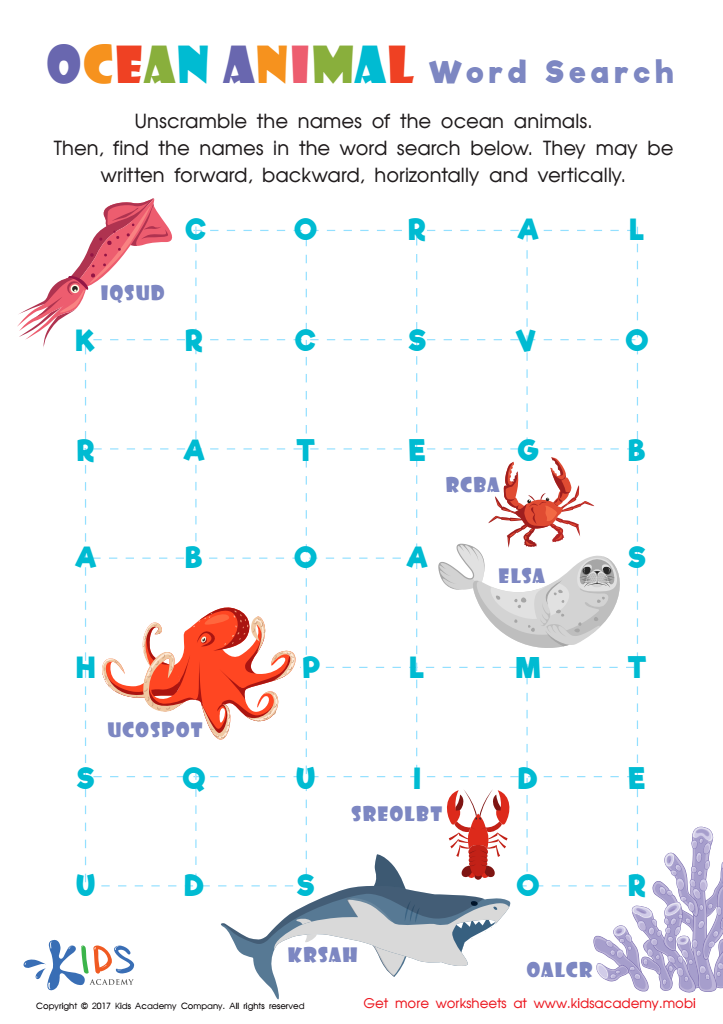

Ocean Animals Word Search Printable
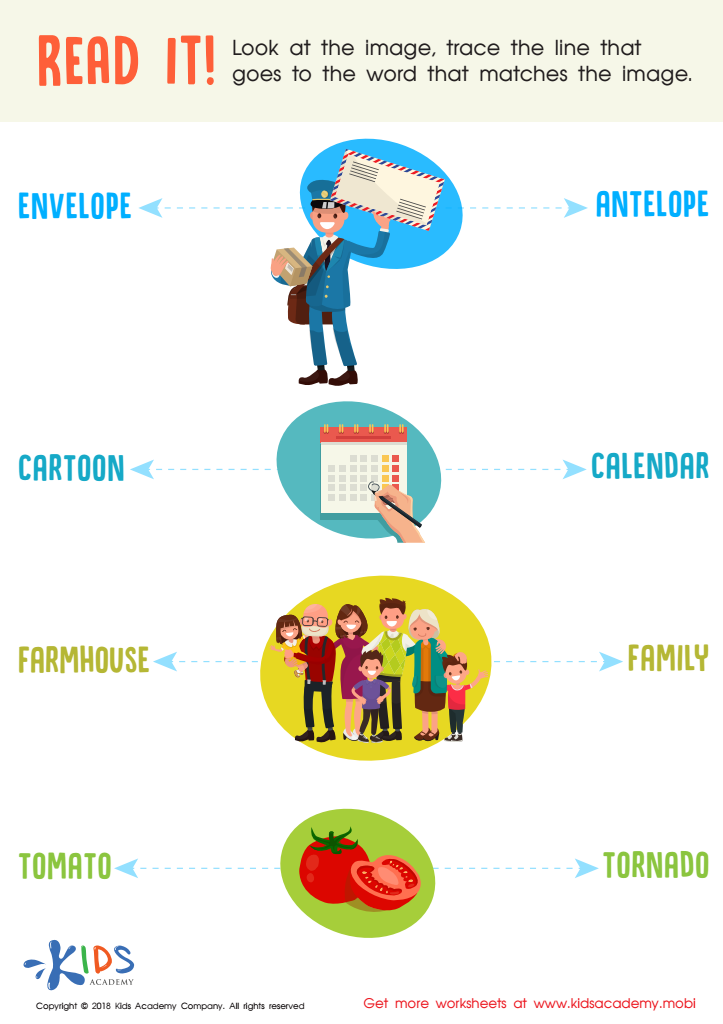

Read It! Worksheet
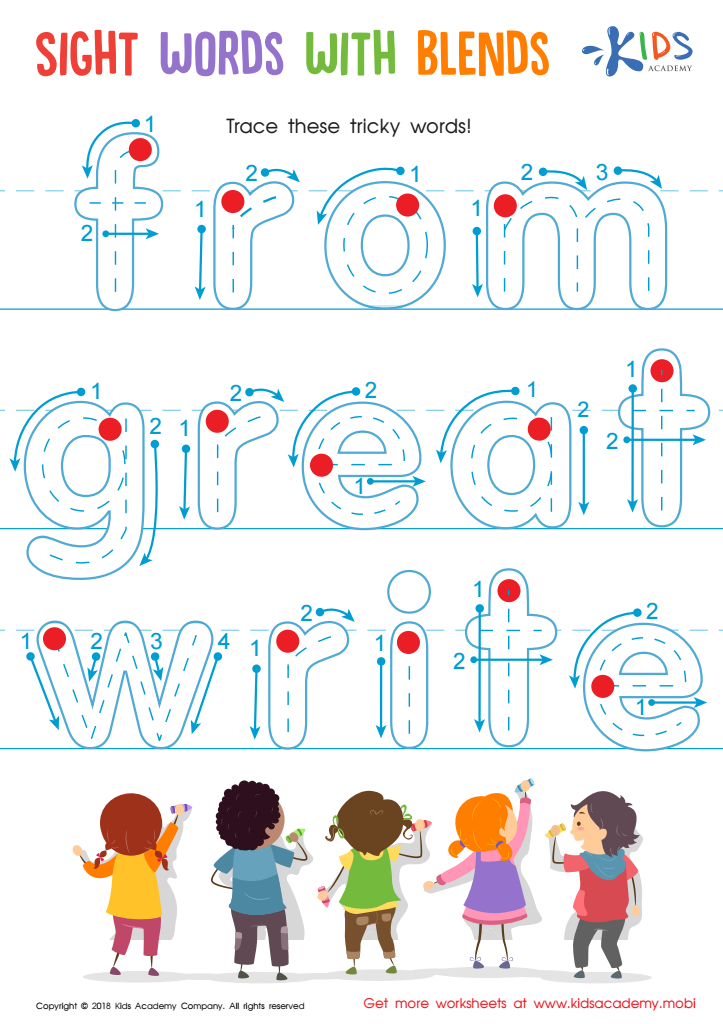

Sight Words with Blends Worksheet
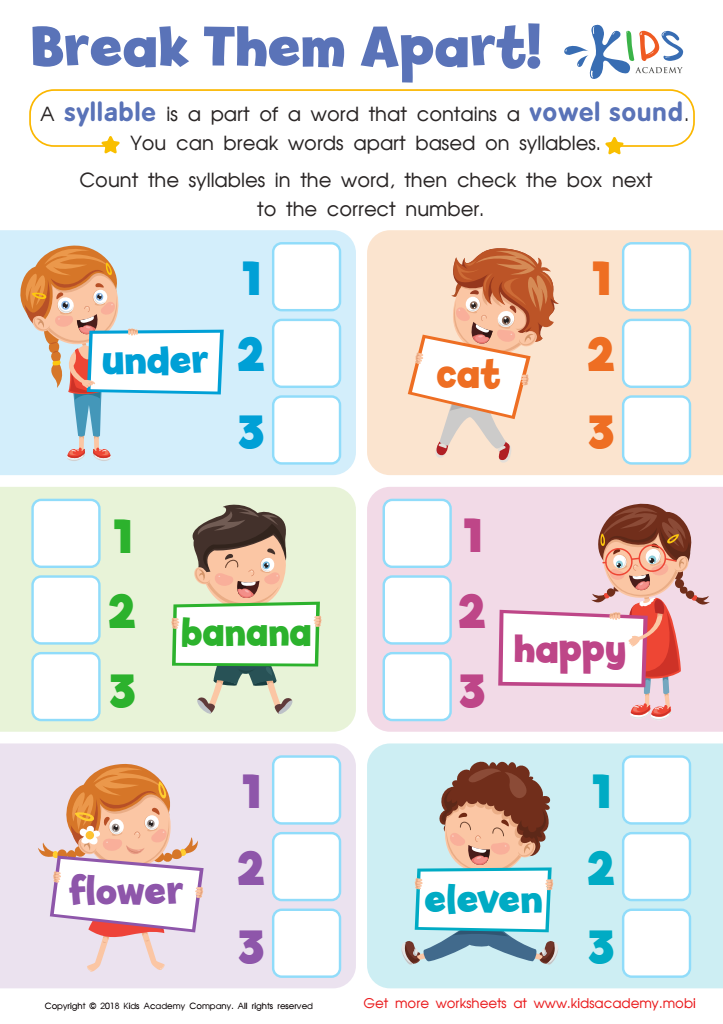

Reading: Break Them Apart Worksheet
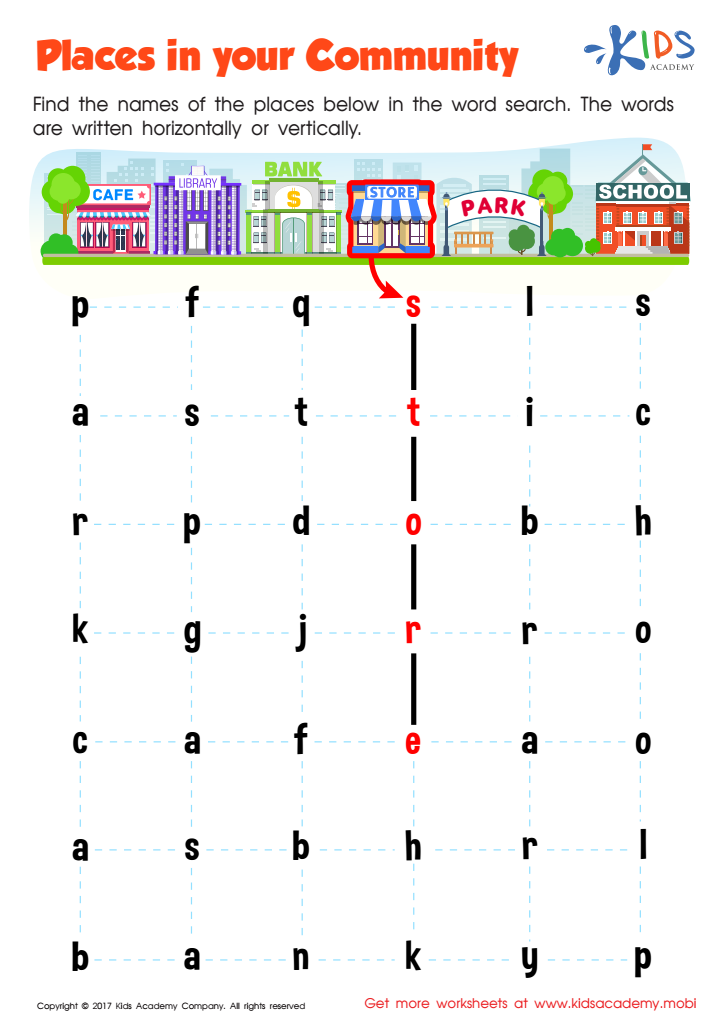

Places in Your Community Worksheet
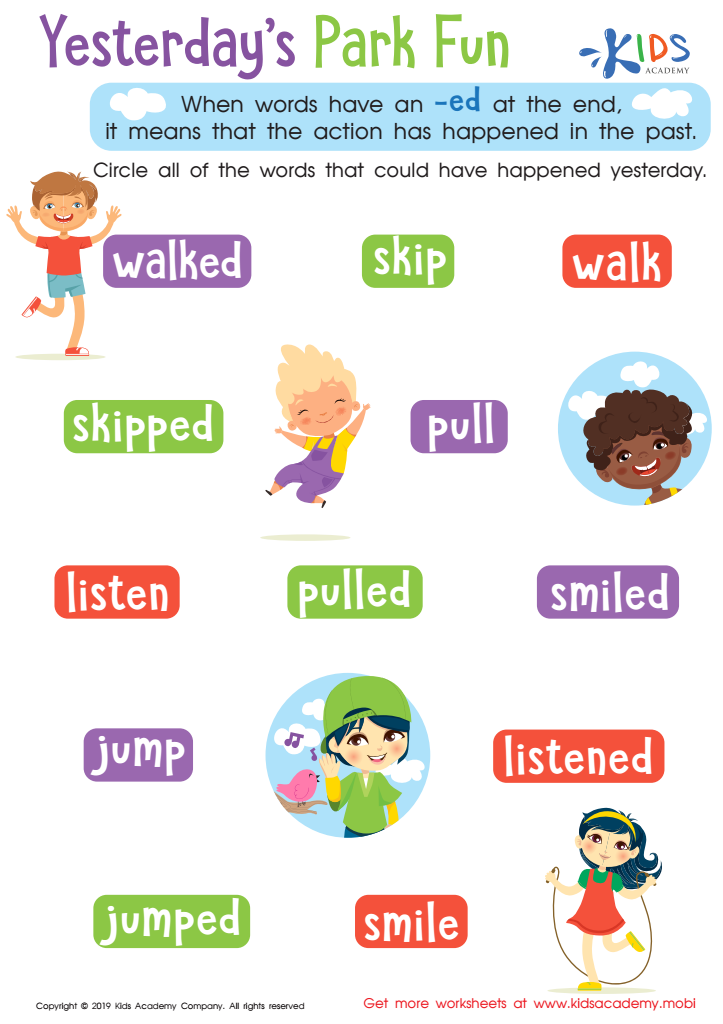

Yesterday's Park Fun Worksheet
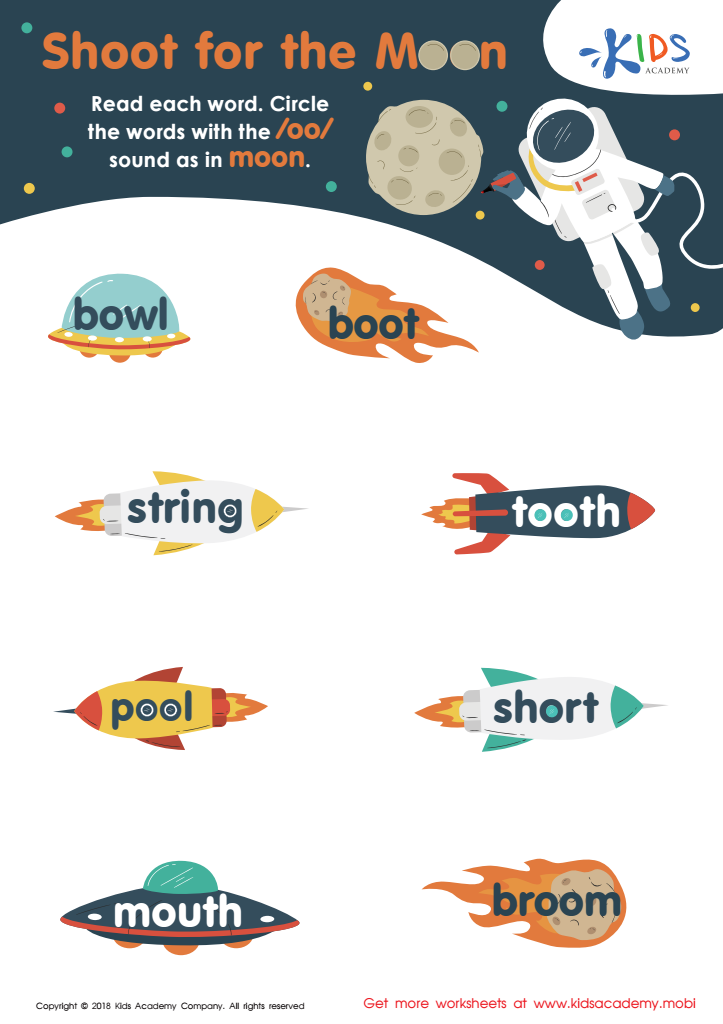

Reading: Shoot for the Moon Worksheet
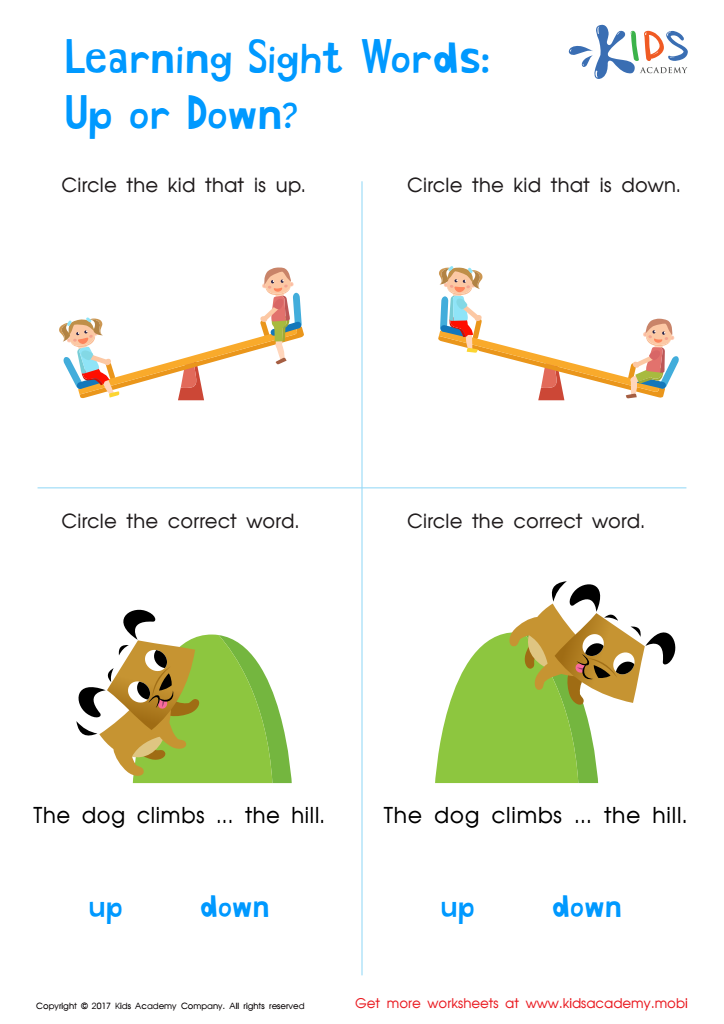

Up or Down Printable Sight Words Worksheet
Vocabulary development for children aged 6-8 is crucial for their overall academic success and effective communication. During these formative years, children are expanding their language skills rapidly as they begin to read and write more complex phrases. A strong vocabulary enhances their comprehension of texts, allowing them to fully grasp ideas and concepts presented in books and classroom discussions.
Teachers and parents play a significant role in fostering this development. When children encounter and engage with new words regularly, their ability to express themselves clearly improves. This is not only vital for reading and writing but also enhances social interactions, allowing students to articulate their thoughts and emotions better.
Moreover, a robust vocabulary is linked to academic performance. Children with a wider range of words tend to excel in subjects like math and science, where understanding specialized terminology is often necessary. By encouraging play, conversation, and diverse reading materials, parents and teachers can create a rich learning environment.
Investing in vocabulary building during these ages lays the foundation for lifelong learning, improved self-esteem, and successful communication skills, equipping children for future educational challenges and personal growth.

 Assign to My Students
Assign to My Students












